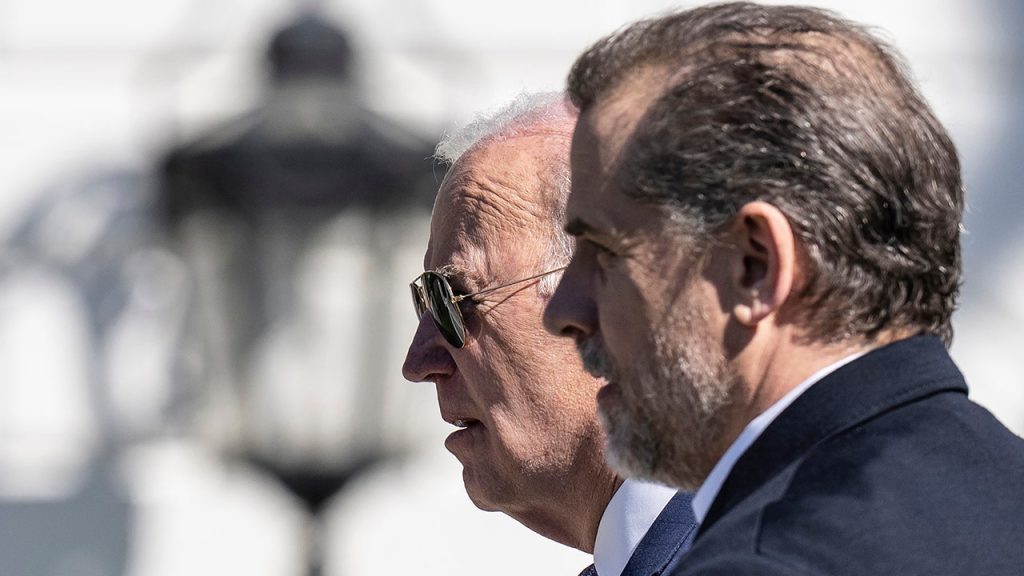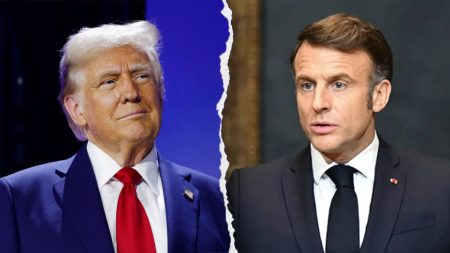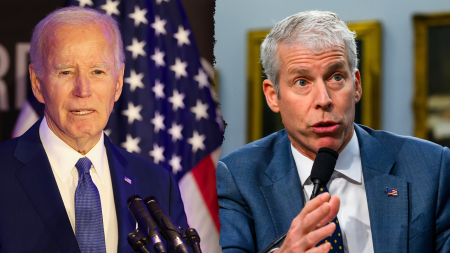President Biden’s decision to pardon his son, Hunter Biden, has sparked significant public controversy and disapproval. A recent Associated Press-NORC Center for Public Affairs Research poll reveals that only a meager 20% of Americans support the pardon, while approximately half actively disapprove. This stark contrast underscores the widespread skepticism and discontent surrounding the president’s action, particularly given his previous assurances that he would not intervene in his son’s legal affairs. The pardon, granted after Hunter Biden’s conviction on felony gun and tax charges, has further fueled public debate about the fairness and impartiality of the justice system, especially when applied to individuals with powerful connections. The poll’s findings paint a picture of widespread public dissatisfaction with the president’s decision, raising questions about the potential political ramifications and the erosion of public trust in his administration.
The political divide is evident in the poll results, although the disapproval of the pardon transcends party lines. While Democrats were more inclined to support the pardon compared to Republicans and Independents, the level of support among Democrats remains surprisingly low at just 38%. This suggests that even within the president’s own party, there is substantial unease and disagreement with his decision. A considerable 27% of Democrats expressed disapproval, highlighting the internal conflict and potential for political fallout within the Democratic base. The fact that a significant portion of Democrats are willing to publicly criticize the president’s actions speaks to the gravity of the situation and the potential for long-term damage to his political standing.
The overwhelming majority of Republicans, approximately 80%, and a significant proportion of Independents, around 51%, expressed their disapproval of the pardon. This bipartisan opposition underscores the widespread perception that the president’s actions were inappropriate and potentially undermined the integrity of the justice system. The strong disapproval from Independents, a crucial voting bloc in American politics, is particularly noteworthy and suggests that the pardon could have broader political implications beyond the immediate controversy. The poll numbers indicate that the president’s decision has alienated a substantial portion of the electorate, potentially impacting his approval ratings and future electoral prospects.
The pardon, granted despite President Biden’s previous public statements asserting he would not interfere in his son’s legal matters, has further exacerbated the controversy. This apparent contradiction between his past pronouncements and his subsequent actions has raised questions about his credibility and trustworthiness. The president’s justification for the pardon, claiming that Hunter Biden was unfairly targeted due to his familial connection, has failed to resonate with a majority of the public. This perceived inconsistency between words and actions has added fuel to the fire of public criticism and amplified the perception of preferential treatment.
The controversy surrounding Hunter Biden’s legal troubles and subsequent pardon has placed the president in a difficult position, forcing him to defend his actions while simultaneously attempting to maintain public trust. The White House’s response to the public outcry has been met with skepticism and further scrutiny, particularly Press Secretary Karine Jean-Pierre’s insistence on the president’s truthfulness despite the apparent contradiction between his past statements and current actions. This defense has done little to quell the growing public dissatisfaction and has instead reinforced the perception of a disconnect between the administration and the concerns of the American people.
The pardon of Hunter Biden has ignited a national debate about the intersection of justice, politics, and family ties. The overwhelming public disapproval of the pardon, across party lines, underscores the deep-seated belief in the principle of equal justice under the law and the rejection of perceived preferential treatment. The controversy is likely to continue to reverberate in the political landscape, potentially impacting public perception of the president and raising questions about the influence of family connections in legal proceedings. The long-term consequences of this decision remain to be seen, but the immediate public reaction suggests a significant erosion of trust and confidence in the president’s judgment.










